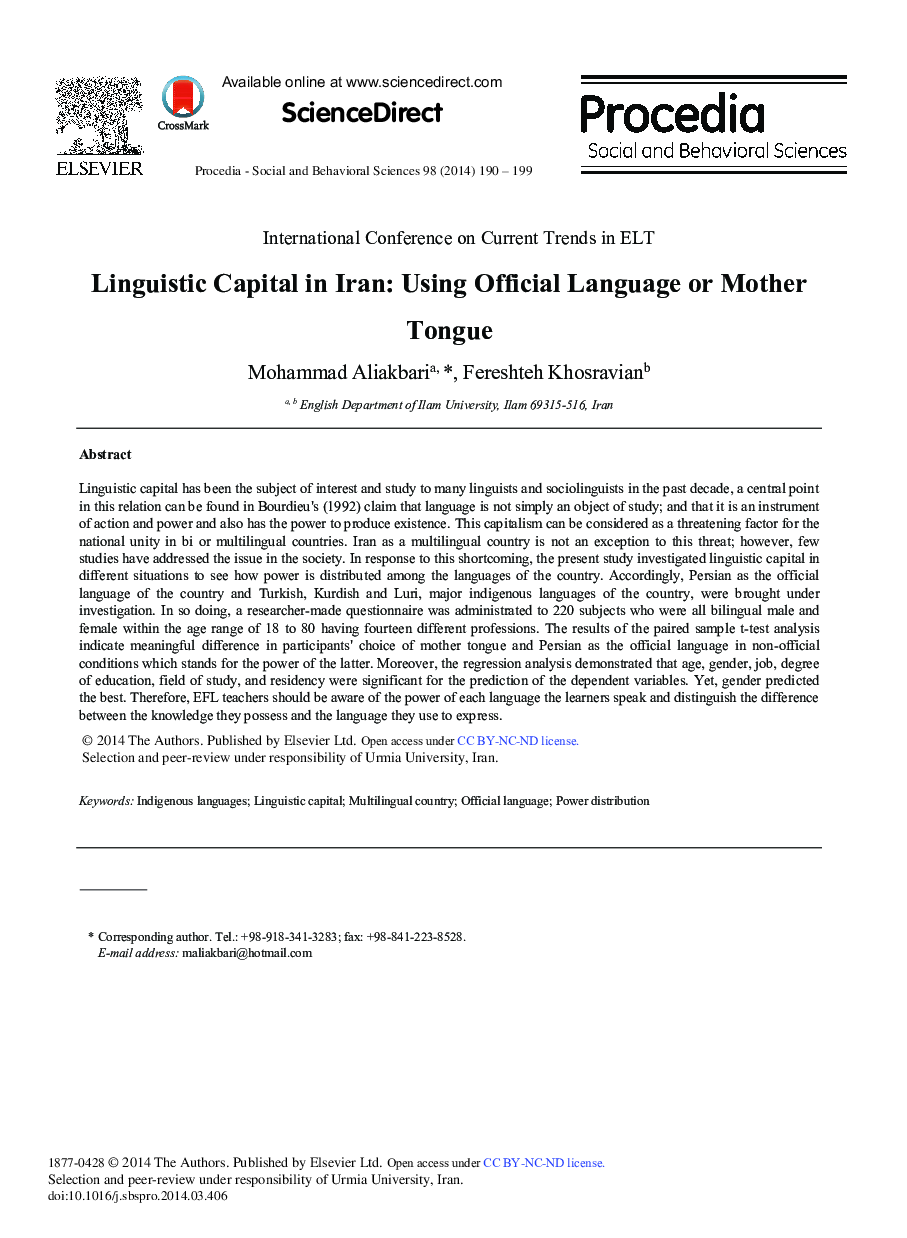| Article ID | Journal | Published Year | Pages | File Type |
|---|---|---|---|---|
| 1118433 | Procedia - Social and Behavioral Sciences | 2014 | 10 Pages |
Linguistic capital has been the subject of interest and study to many linguists and sociolinguists in the past decade, a central point in this relation can be found in Bourdieu's (1992) claim that language is not simply an object of study; and that it is an instrument of action and power and also has the power to produce existence. This capitalism can be considered as a threatening factor for the national unity in bi or multilingual countries. Iran as a multilingual country is not an exception to this threat; however, few studies have addressed the issue in the society. In response to this shortcoming, the present study investigated linguistic capital in different situations to see how power is distributed among the languages of the country. Accordingly, Persian as the official language of the country and Turkish, Kurdish and Luri, major indigenous languages of the country, were brought under investigation. In so doing, a researcher-made questionnaire was administrated to 220 subjects who were all bilingual male and female within the age range of 18 to 80 having fourteen different professions. The results of the paired sample t-test analysis indicate meaningful difference in participants’ choice of mother tongue and Persian as the official language in non-official conditions which stands for the power of the latter. Moreover, the regression analysis demonstrated that age, gender, job, degree of education, field of study, and residency were significant for the prediction of the dependent variables. Yet, gender predicted the best. Therefore, EFL teachers should be aware of the power of each language the learners speak and distinguish the difference between the knowledge they possess and the language they use to express.
